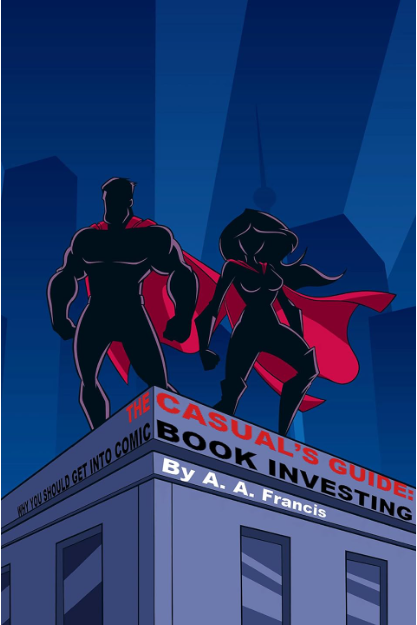10 Reasons Secret Identities Are Ridiculous For Superheroes

DALL-E
Have you noticed in the MCU films that secret identities are barely used? RDJ’s Tony Stark revealed he was Iron Man in 2008’s Iron Man. Everyone knows Steve Rogers is Cap and Bruce Banner is the Hulk. Even Spider-Man’s identity was revealed in 2019’s Far From Home. So why are secret identities useless in the MCU when they are still the norm in comic books?
The secret identity is a century-old storytelling trope that is outdated, used more out of tradition than creativity, and causes more storytelling problems than it solves. Here are 10 reasons why the superhero’s secret identity is ridiculous.
1. Story Trope From a Bygone Era

DALL-E
Secret identities are a story trope that gained prominence in the Golden Age of comic books, which started in 1938. Storytelling tropes were much simpler then, and a superhero with a double life offered creators lots of creative leeway in storytelling. Secret identities were also a reflection of the jingoistic secrecy propaganda campaigns of the era.
The first Captain America comic features the hero punching Hitler on the cover. The Invaders, Marvel’s first super team, fought Nazis. Captain America, a soldier, and Iron Man, a wealthy industrialist, kept their identities secrets to protect them from Nazis and war enemies. It was a fantastical idea in the 20th century that just isn’t plausible in the modern era.
2. Secret Identities are Outdated in the Modern Era

123RF
In 2019, DC Comics ditched the Clark Kent persona completely. In 2006’s Civil War comic book event and 2019’s Spider-Man: Far From Home, Spider-Man was publicly revealed to be Peter Parker. Comic book creators and filmmakers feel hampered by the secret identities trope and want to move past it. While secret identities are moot in the MCU, they still cling on in comic books.
Comic creators are now just recycling alter ego tropes from decades ago, usually because of fan preference. Lex Luthor used a telepath to make the world forget Superman’s is Clark Kent and Spider-Man made a deal with the devil to make the world forget he is Peter Parker. These changes were made because fans revolted at the changes, and these are not the only examples.
3. Implausible in Story Continuity

DALL-E
20th-century standup comedians would craft whole routines on how ridiculous it is that no one could figure out Clark Kent and Superman were the same person: Kent’s disguise was glasses and a low self-esteem personality. No one in Gotham City can figure out that billionaire Bruce Wayne, who disappears whenever Batman is around and reappears with bruises and excuses, might be Batman.
That’s like Elon Musk or Jeff Bezos only disappearing for hours or days at a time while a masked superhero appeared. Secret identities were implausible decades ago and are outmoded now.
4. Supporting Characters Must Be Ultra-Naive

123RF
It strains credulity that the supporting cast, friends, and relatives of superheroes can’t use logic and deducement. If Peter Parker, Bruce Wayne, or Clark Kent disappears whenever there is a threat and comes back right after the superhero disappears asking what happened, then you don’t have to be a Sherlock to add 1 +1. Sometimes supporting characters figure it out or are told, which then lessens the dramatic weight of secret identities in the first place.
5. Their Loved Ones Are Always in Danger Anyway

123RF
Lois Lane and Jimmy Olsen are always in danger because they are friends with Superman; the bad guys not knowing Kent is Superman is a moot point. In 2019’s Batman #77, Bane killed Alfred Pennyworth, Bruce Wayne’s butler. Bane knows that Wayne and Batman are the same person. In 2007’s “One More Day” storyline, Aunt May is accidentally but mortally wounded by a bullet from a Kingpin assassin. The assassin was trying to kill Spider-Man, not Aunt May. One reason given for the secret identities trope is the protection of those nearest the superhero, but it is a flimsy reason.
6. Everyone Knows the Character’s Identity

DALL-E
If you have been reading comic books for more than a decade, then you know that most superheroes don’t really have secret identities anymore, even if fans clamor for the trope. Lex Luthor, The Joker, Bane, Catwoman, Ra’s Al Ghul, Lucious Fox, dozens of Robin sidekicks and others know billionaire Bruce Wayne is Batman. More people seem to know Wayne is Batman than not. Even in comic books, it strains credulity to believe a superhero can operate without anyone knowing their secrets. So, what is the point of a secret identity?
7. Alter Egos are Boring, Superheroes are Exciting

123RF
Should the trope of secret identities be banished? Perhaps not, but the idea needs reimagining. Fans seem to be stuck on the tradition for its own sake. Take Spider-Man for example. Comic book fans have criticized the creative stagnation of Spider-Man comics for decades. Peter Parker is a science genius, broke, always down on his luck, and always has girl problems. Whenever creators change that formula, fans revolt but still complain about the status quo. The secret identity trope can be boring, but it is a tradition fans want to keep intact.
8. No One Can Live Two Lives Forever

123RF
Secret identities in comic books are paradoxical because one benefit of the trope is the potential of the superhero’s alter ego being revealed; still, that negates the need for it in the first place. “Born Again” is a 1986 Daredevil storyline where Matt Murdock’s former love, Karen Page, betrays his identity to the Kingpin. No one can live a double life forever, even in comic books. However, the status quo is always reset in comic books. So, even after such reveals, creators must come up with a way to reverse it sometime later. What is the point of watching Clark Kent juggle two personas, have it undone, and then reestablished again?
9. Secret Identities Revealed, Hidden Again

123RF
As previously mentioned, secret identities often have to be revealed to add dramatic heft to a story. Still, the reveal is then reversed to restore the comic back to the status quo. Creatively undoing the secret identity causes intense fan backlash. One More Day is considered one of the worst Spider-Man stories ever written; Peter Parker makes a deal with Mephisto, Marvel’s version of the devil, to erase his marriage which also erased knowledge of his identity.
The story was also written to mollify fan backlash to Spider-Man announcing his alter ego in the earlier Civil War comic. In a weird way, fans revolt when secret identity tropes become stagnant, are changed, and then changed back again; the common denominator is always the problem with secret identities.
10. Superheroes Commit Crimes to Protect Alter Egos

123RF
Superheroes often commit crimes to protect or reverse secret identity reveals. Once Daredevil, Spider-Man, and other heroes had their identities publicly revealed, they automatically became vigilantes, which made them criminals. Lex Luthor tormented a telepath and used him to make the world forget Clark Kent and Superman were the same person; also, anyone who found out Kent’s secret would be killed. whether Superman knew or not, he benefitted, which made him an accessory to a global crime after the fact.
In 2014’s Superman #27, Superman selfishly allows supervillain Parasite to drain enough of Lois Lane’s life energy to cause her to forget he is Clark Kent. What good are secret identities if they make superheroes do evil things?
Secret Identity Tropes Must Evolve

DALL-E
In the 20th century, Superman went into a phone booth to become Superman. Phone booths are now virtually extinct. In the comic books, the Batman persona is the primary one; Bruce Wayne is technically not real in Bruce Wayne’s own mind. Why do comic book fans insist on the Peter Parker persona surviving when he is a broke, weak, and emotionally immature man who hasn’t changed in years (all by editorial decree) while simultaneously cheering for Spider-Man?
How can secret alter egos exist in a digital age with cameras everywhere? Some traditions die hard and the secret identity is one of them. It has virtually disappeared in superhero films, so it could happen in comics next. Even if the secret identity trope continues to thrive in comics, it must evolve and be revolutionized in the 21st century to be interesting again.
Read More
8 Top Websites and Shops for Selling Comic Books
10 Unbelievable Behind-the-Scenes Secrets from Marvel Movies

Allen Francis is a full-time writer, prolific comic book investor and author of The Casual’s Guide: Why You Should Get Into Comic Book Investing. Allen holds a BA degree from Marymount Manhattan College. Before becoming a writer Allen was an academic advisor, librarian, and college adjunct for many years. Allen is an advocate of best personal financial practices including saving and investing in your own small business.




